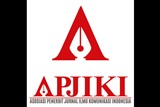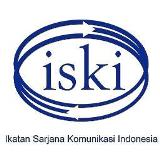- Focus and Scope
- Section Policies
- Peer Review Process
- Open Access Policy
- Publication Ethics
- Author Fees
Focus and Scope
Perspektif Komunikasi focuses on writings that contains research and contemporary thinking in the field of Communication Studies in various perspectives and angles include:
1. Political Communication, features cutting-edge theory-driven empirical research at the intersection of politics and communication. This could be an analytical viewpoints that advance understanding of the practices, processes, content, effects, and
policy implications of political communication.
2. Business Communication, address all areas of business communication including but not limited to business composition and information systems only, but also international business communication, management communication, organizational and corporate communication.
3. Marketing Communication, concerning all aspects of marketing and corporate communication, branding both corporate and product-related, and promotion management include integrated marketing communication, advertising, public relations and broadcasting.
4. Development Communication, address the using of communication to facilitate social development, promotes information exchanges to create positive social change via sustainable development.
Section Policies
Articles
Peer Review Process
Reviewed manuscripts are original manuscripts that have been selected by editorial board and arranged according to the writing guidelines of Perspektif Komunikasi. For some manuscripts, reviewing process could be conducted by Reviewers (the articles will be sent to the peer reviewers to get Single-Blind Peer Review Process). Consideration in determining the reviewers and its number, and the decision whether a manuscript is published or not, is determined by the editorial board based on the assessment and / or input from reviewers. Reviewing process will consider novelty, objectivity, method, scientific impact, conclusion, and references.
Reviewer Eligibility
Reviewers of this journal are those, who hold minimum master degree in communication science and social sciences, They were experienced in the prestigious journal and publication that was spread around the national and abroad.. For confirmation please contact our email: perspektifkomunikasi@umj.ac.id
Term & Condition for Perspektif Komunikasi Reviewer:
- Recommended by the editorial board and compliant to be assigned by the Editor in Chief.
- Agree and sign the Reviewer Form.
- Has the expertise in the field that related to the focus of publication (Focus and Scope);
- Has the track record as writer of journal, book, and/or academic writings in communications.
- Agree to comply with the writing and publication requirements of Perspektif Komunikasi
- Deliver the clear reviewing result to the editorial board in writing.
Receive compensation from the publisher in accordance to the funding policy of Perspektif Komunikasi
Open Access Policy
This journal provides immediate open access to its content on the principle that making research freely available to the public supports a greater global exchange of knowledge.
Publication Ethics
Publication Ethics
Perspektif Komunikasi: Jurnal Ilmu Komunikasi Politik dan Komunikasi Bisnis is a peer-reviewed journal, published by Communication Studies and Master of Communication Studies Program, Faculty of Social and Political Sciences, Universitas Muhammadiyah Jakarta. This statement clarifies ethical behaviour of all parties involved in the act of publishing an article in this journal, including the author, the editor-in-chief, the Editorial Board, the reviewer, and the publisher.
Ethical Guideline for Journal Publication
The publication of an article in Perspektif Komunikasi is an essential building block in the development of a coherent and respected network of knowledge. It is a direct reflection of the quality of the work of the authors and the institutions that support them. Peer-reviewed articles support and embody the scientific methods. It is therefore important to agree upon standards of expected ethical behavior for all parties involved in the act of publishing: the author, the editor, the reviewer, the publisher, and the society. As the publisher of Perspektif Komunikasi,Publisher takes its duties of guardianship over all stages of publishing seriously and it recognizes its ethical and other responsibilities. Communication Studies and Master of Communication Studies Program, Faculty of Social and Political Sciences, Universitas Muhammadiyah Jakarta, committed to ensuring that advertising, reprint or other commercial revenue has no impact or influence on editorial decisions.
Publication decisions
The editor of the Perspektif Komunikasi is responsible for deciding which of the articles submitted to the journal should be published. The validation of the work in question and its importance to researchers and readers must always drive such decisions. The editors may be guided by the policies of the journal's editorial board and constrained by such legal requirements as shall then be in force regarding libel, copyright infringement and plagiarism. The editors may confer with other editors or reviewers in making this decision.
Fair play
An editor at any time evaluate manuscripts for their intellectual content without regard to race, gender, sexual orientation, religious belief, ethnic origin, citizenship, or political philosophy of the authors.
Confidentiality
The editor and any editorial staff must not disclose any information about a submitted manuscript to anyone other than the corresponding author, reviewers, potential reviewers, other editorial advisers, and the publisher, as appropriate.
Disclosure and conflicts of interest
Unpublished materials disclosed in a submitted manuscript must not be used in an editor's own research without the express written consent of the author.
Duties of Reviewers
Contribution to Editorial Decisions
Peer review assists the editor in making editorial decisions and through the editorial communications with the author may also assist the author in improving the paper.
Promptness
Any selected referee who feels unqualified to review the research reported in a manuscript or knows that its prompt review will be impossible should notify the editor and excuse himself from the review process.
Confidentiality
Any manuscripts received for review must be treated as confidential documents. They must not be shown to or discussed with others except as authorized by the editor.
Standards of Objectivity
Reviews should be conducted objectively. Personal criticism of the author is inappropriate. Referees should express their views clearly with supporting arguments.
Acknowledgement of Sources
Reviewers should identify relevant published work that has not been cited by the authors. Any statement that an observation, derivation, or argument had been previously reported should be accompanied by the relevant citation. A reviewer should also call to the editor's attention any substantial similarity or overlap between the manuscript under consideration and any other published paper of which they have personal knowledge.
Disclosure and Conflict of Interest
Privileged information or ideas obtained through peer review must be kept confidential and not used for personal advantage. Reviewers should not consider manuscripts in which they have conflicts of interest resulting from competitive, collaborative, or other relationships or connections with any of the authors, companies, or institutions connected to the papers.
Duties of Authors
Reporting standards
Authors of reports of original research should present an accurate account of the work performed as well as an objective discussion of its significance. Underlying data should be represented accurately in the paper. A paper should contain sufficient detail and references to permit others to replicate the work. Fraudulent or knowingly inaccurate statements constitute unethical behaviour and are unacceptable.
Originality and Plagiarism
The authors should ensure that they have written entirely original works, and if the authors have used the work and/or words of others that this has been appropriately cited or quoted.
Multiple, Redundant or Concurrent Publication
An author should not in general publish manuscripts describing essentially the same research in more than one journal or primary publication. Submitting the same manuscript to more than one journal concurrently constitutes unethical publishing behaviour and is unacceptable.
Acknowledgement of Sources
Proper acknowledgment of the work of others must always be given. Authors should cite publications that have been influential in determining the nature of the reported work.
Authorship of the Paper
Authorship should be limited to those who have made a significant contribution to the conception, design, execution, or interpretation of the reported study. All those who have made significant contributions should be listed as co-authors. Where there are others who have participated in certain substantive aspects of the research project, they should be acknowledged or listed as contributors. The corresponding author should ensure that all appropriate co-authors and no inappropriate co-authors are included on the paper, and that all co-authors have seen and approved the final version of the paper and have agreed to its submission for publication.
Disclosure and Conflicts of Interest
All authors should disclose in their manuscript any financial or other substantive conflict of interest that might be construed to influence the results or interpretation of their manuscript. All sources of financial support for the project should be disclosed.
Fundamental errors in published works
When an author discovers a significant error or inaccuracy in his/her own published work, it is the author’s obligation to promptly notify the journal editor or publisher and cooperate with the editor to retract or correct the paper.
Author Fees
This journal charges the following author fees.
Article Submission and Review Process: 0.00 (IDR)
Authors are not required to pay an Article Submission Fee as part of the submission process to contribute to review costs.
Article Publication: 650.000 (IDR)
If the paper is accepted for publication, you will be asked to pay Article Processing Charges (APCs) to cover publications costs. This journal charges the article publication fee for supporting the cost of wide open access dissemination of research results, managing the various costs associated with handling and editing of the submitted manuscripts, and the Journal management and publications in general, the authors or the author's institution is requested to pay a publication fee for each article accepted. The fee covers:
1. The standard twelve (12) pages manuscript. For every additional page, an extra fee of 100,000 (IDR) per page will be charged.
2. DOI registration for each paper.
3. FREE OF CHARGE will be available for paper submissions of authors from a minimum of two countries (outside Indonesia).
 ::
::










.png)



_2.png)


1.png)

2.png)
